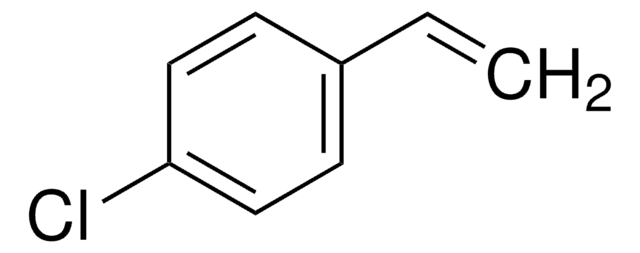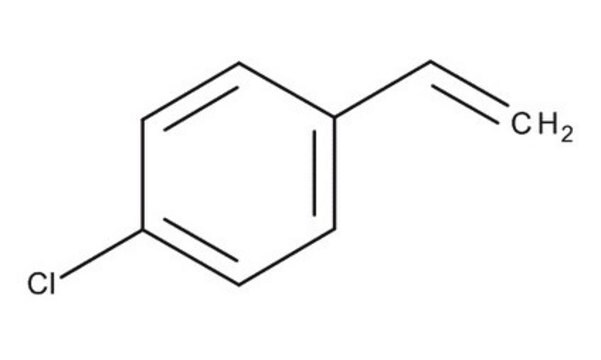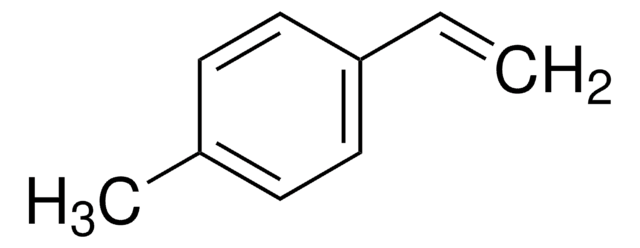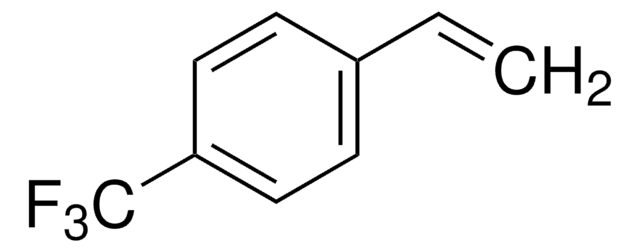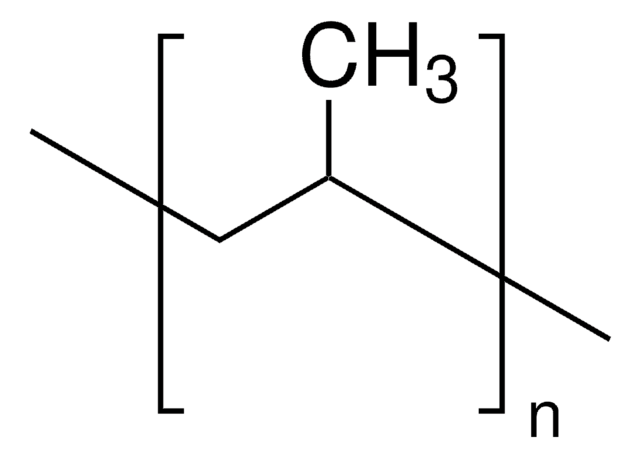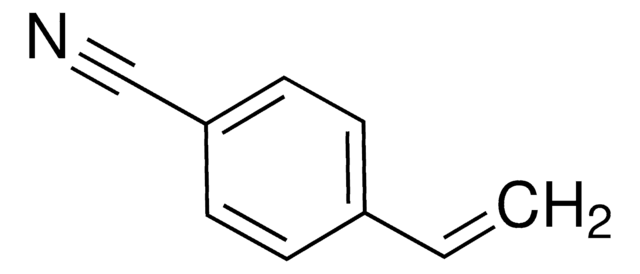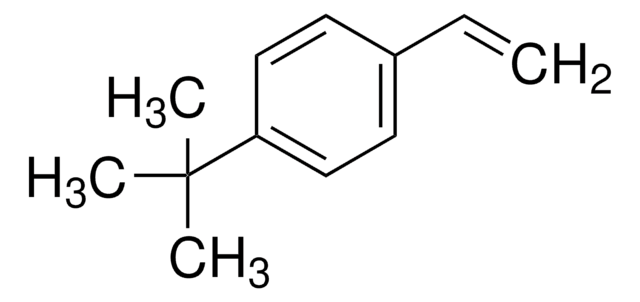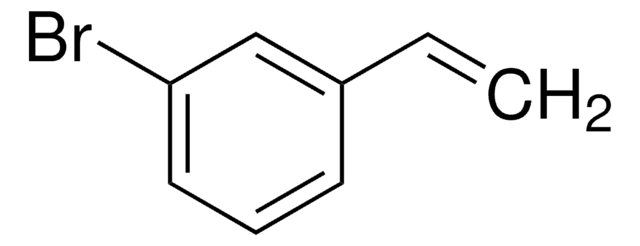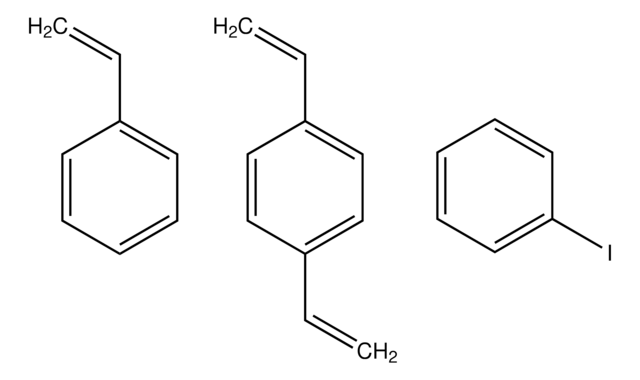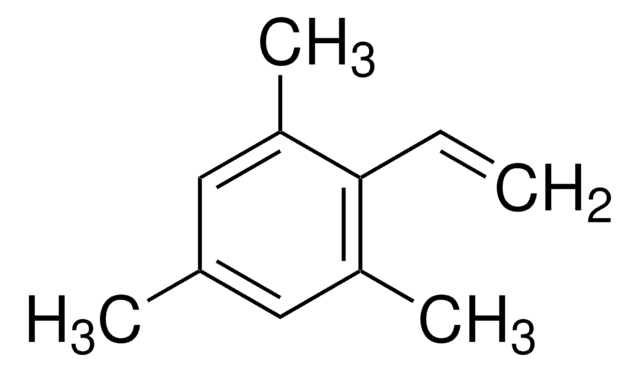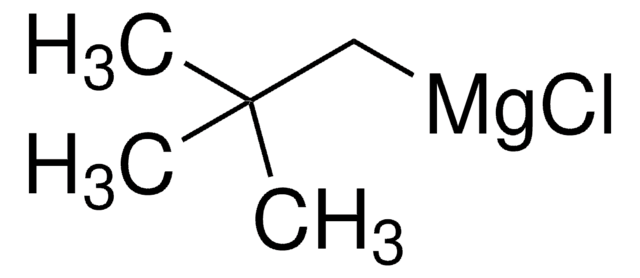124141
4-Bromostyrene
contains 0.05% 3,5-di-tert-butylcatechol as inhibitor, 97%
Synonym(s):
1-(4-Bromophenyl)ethylene, 1-Bromo-4-ethenylbenzene, 1-Bromo-4-vinylbenzene, 4-Vinyl-1-bromobenzene, p -Bromostyrene
About This Item
Recommended Products
Quality Level
Assay
97%
form
liquid
contains
0.05% 3,5-di-tert-butylcatechol as inhibitor
refractive index
n20/D 1.594 (lit.)
bp
89 °C/16 mmHg (lit.)
density
1.4 g/mL at 25 °C (lit.)
storage temp.
−20°C
SMILES string
Brc1ccc(C=C)cc1
InChI
1S/C8H7Br/c1-2-7-3-5-8(9)6-4-7/h2-6H,1H2
InChI key
WGGLDBIZIQMEGH-UHFFFAOYSA-N
Looking for similar products? Visit Product Comparison Guide
Related Categories
General description
Application
- Structure activity relationships (SAR) study of the chemical and biochemical properties of the vinyl group of styrene.
- Synthesis of silsesquioxanes (SQ) having 4-bromostyrenyl substituents.
- To investigate the photochemical growth of Br-terminated self-assembled monolayers (SAMs) on Si(111).
- Synthesis of poly(1,4-phenylenevinylene), via Heck reaction.
- Synthesis of nitroolefins, via alkene cross-metathesis.
Signal Word
Warning
Hazard Statements
Precautionary Statements
Hazard Classifications
Eye Irrit. 2 - Skin Irrit. 2
Storage Class Code
10 - Combustible liquids
WGK
WGK 3
Flash Point(F)
167.0 °F - closed cup
Flash Point(C)
75 °C - closed cup
Personal Protective Equipment
Choose from one of the most recent versions:
Already Own This Product?
Find documentation for the products that you have recently purchased in the Document Library.
Customers Also Viewed
Articles
The Heck reaction is the palladium catalyzed cross-coupling reaction between alkenes and aryl or vinyl halides (or triflates) to afford substituted alkenes.
Our team of scientists has experience in all areas of research including Life Science, Material Science, Chemical Synthesis, Chromatography, Analytical and many others.
Contact Technical Service